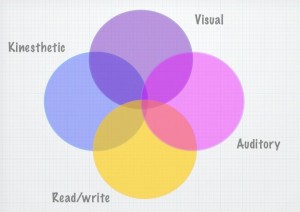As I travel on school visits, almost everyone I run into knows some boy who is having trouble in school. Taxi drivers, customs officers, and front desk staff in small hotels around the world tell me about the educational difficulties of their son/brother/nephew.
During a one hour flight, the young man who sat next to me on the small commuter plane told me of his harrowing experience with a history teacher in high school who belittled him because he did so poorly in the class. The teacher believed that the young man was simply lazy and would not try because he had such good grades in math. The young man pointed out that math was easy for him as the subject made sense and he found the material fascinating. He had trouble with history because he could not keep track of what the teacher was saying during lectures.
I asked him about what method he used to take notes in the history class. He said that was the problem, the teacher wouldn’t let them take notes because taking notes was, according to the teacher, distracting and prevented students from paying attention to the lecture. I was flabbergasted. “You weren’t allowed to take notes?” I asked. “No, the teacher gave us the printed notes and said that writing out the notes was no better than doodling.”
This is the problem that many boys have in school. The teacher believes that there is one best way to learn and then requires all students to follow along with that method. Any student who cannot learn that way is deemed lazy or someone with learning issues because, after all, the teacher and most of the class can learn that way. I’ve been thinking about this issue because I’m going to talk at a career day at my high school on the subject of becoming a teacher. So I’ve been thinking about what kind of people would select education as a career.
I was a poor student at the beginning of high school, almost flunking out in Year 9. At the end of my first year in high school, I had failed French and Latin, I got the lowest pass grade in English, a mediocre grade in history, and the highest grade in math. My father taught French and my mother taught English, so the school decided that I was lazy, after all, I certainly had the background to do well in languages.
I had my father for French in summer school and after that experience, he never gave me any grief again about my language grades. His point was that I did well in science and math and he had trouble in those areas. Everyone has their strengths and mine were not in his subject. My father knew that I approached the learning process differently from the way that he did. He helped me that summer and when I went back to school in the fall, I took the second year of French and passed it – not well, you understand, but I did get the credit.
The problem is I don’t learn well by listening, which can be described as an auditory processing problem.
Years later, I was changing a flat tire on my car swapping it for the spare. My father was watching and eventually asked me how I knew how to change a tire. I had seen my husband do it and then I pointed out that the car came with a manual that described the process. The manual was out so that I could make sure that I had the jack in the right location. My father picked up the book and perused the appropriate section. He finally put the book down saying, “but the directions are all in pictures!” “Exactly,” I replied.
I remembered that later when trying to help a student with my science class which was all lab exercises. That student needed to read about the experiment before doing them. In my class, that student could have been said to have a kinesthetic processing problem.
Not being able to learn the way the teacher teaches should not be considered a learning disability as long as the student can learn material in a different way. It may be inconvenient for the teacher to present the material using several approaches, but that is what teaching is all about. It helps all students to see the material from differing viewpoints.
So, what kind of individuals should become teachers? Most teachers were good students and they listen well, read well, write well, and can pay attention when someone is talking. As I point out, you have just NOT described a 10-year-old boy. Being a good student has little in common with being a good teacher – the skill set is very different. Many teachers seem to spend most of their time proving that they know the material. They ask questions and when the students can’t or won’t answer, the teacher answers the question him/herself. That isn’t teaching, that is showing off.
Boys will only learn when their teachers give them the opportunity to experience the material in different ways. I hope your boy has good teachers.

